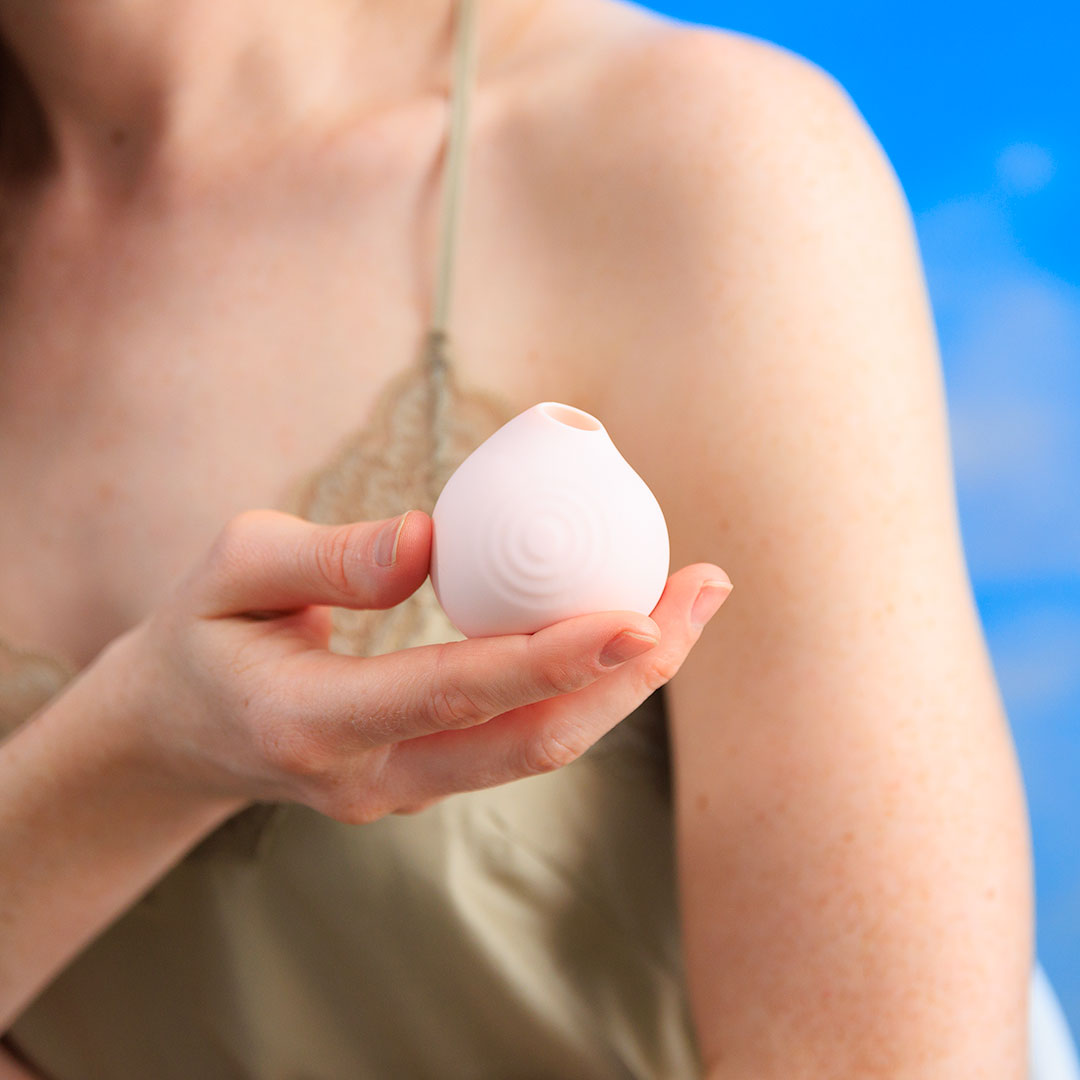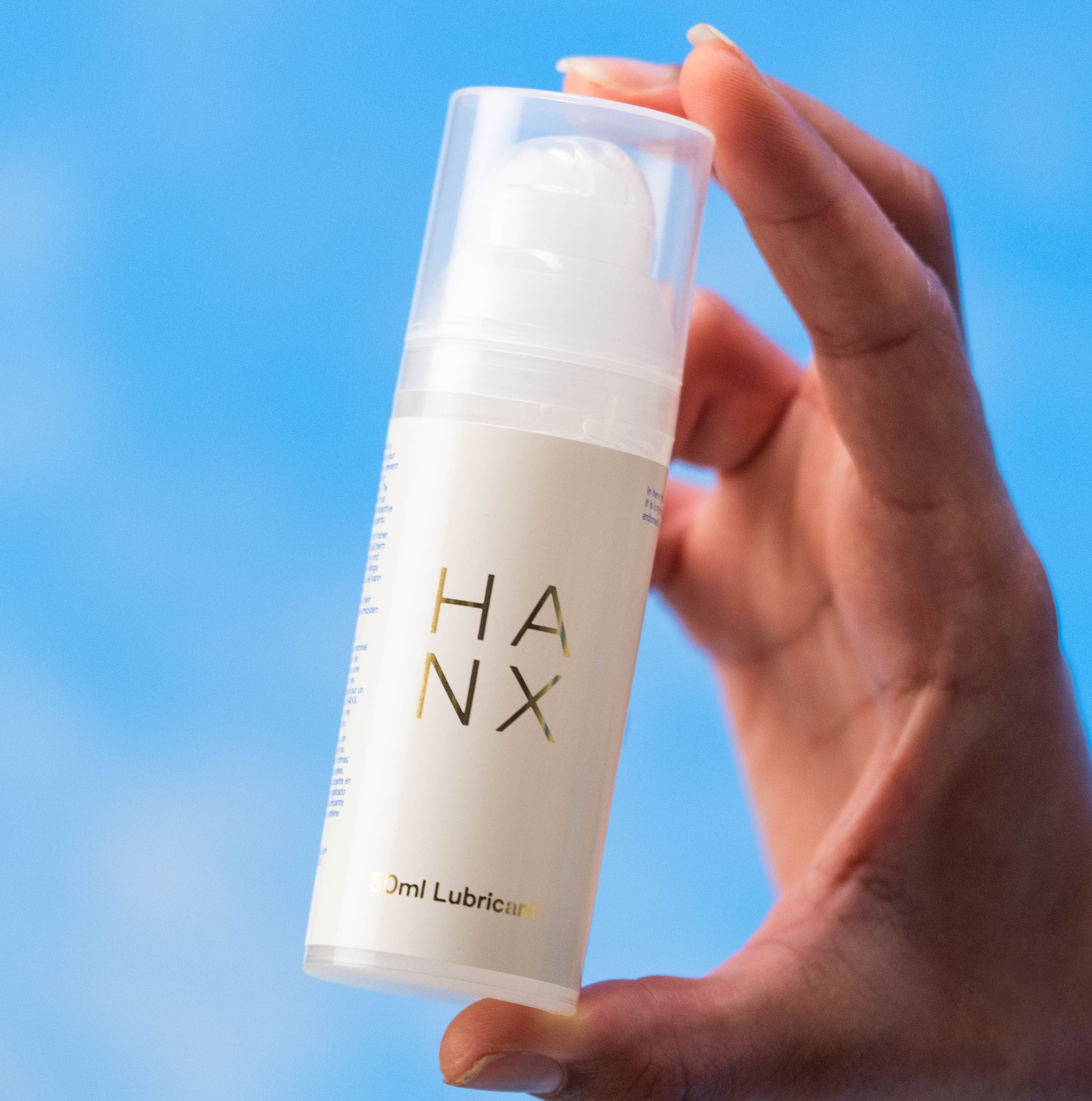What is Arousal Non-Concordance?
Ever started getting it on with someone you're really, really into... and your body won't play along?
Back when we were devleoping our bestselling lube, we surveyed over 5,000 people to discover their lubricant preferences - and perceptions of arousal, too. 76% of respondents associated increased natural lubrication with being more aroused - and it's a common misconception. Many people believe that the more aroused a woman or person with a vagina is, the more natural lubricant they produce. In fact, medically speaking, higher levels of arousal aren't directly correlated to your natural level of 'wetness'. This can explain why so many of us experience discomfort during sex by pushing through with penetration, even though it can be painful when you're not 'wet' - and consequently feelings of confusion or shame that your body's response isn't reflecting how hot you find your partner/the situation.
Arousal is not a binary experience. Desire can lead to sexual arousal which in turn can lead to involuntary bodily responses, but it's not a sure thing. As a general rule of thumb, our society, we do a whole lot of assuming.
We assume that erections and vaginal wetness mean we're being turned on.
We assume that we know how turned on our partner is by the way their body responds to stimuli: a soft stroke of their skin, a whispered demand, a filthy sext or out-and-out pornography.
We assume that if we're experiencing a drop in libido, there's something wrong very with us. (Spoiler: it's very natural for your sex drive to change at different points of your life).
It's time we recognised the difference between subjective arousal and physical arousal.
What is Subjective Arousal?
What is Physical Arousal?
What is Arousal Non-Concordance?
It’s completely normal to feel that your subjective arousal and your physical arousal aren’t aligned. Many people experience this and it’s known as arousal non-concordance. Examples of this might include:
- Feeling confusion when your partner has gone down on you and your genitals physically reacted - but you weren’t feeling turned on or enjoying pleasure in the moment.
- This can also occur in reverse. You might really want to initiate or engage in sexual activity - but your genitals have other ideas. No erection, no getting wet, no physical evidence of your attraction and arousal.
What causes Arousal Non-Concordance?
A number of factors may make arousal non-concordance more likely, including stress, burnout, tiredness, lack of energy or you just simply weren’t feeling it in the moment.
Unfortunately as a result of our cultural conditioning, sex tends to be a taboo topic, especially when what's happening between the sheets doesn't live up to what we've seen in movies, or porn. This can make it much trickier to ask for help or even raise the topic with our partner, friends, or healthcare professionals. When we don’t feel comfortable sharing things with others, we tend to overthink and place too much emphasis on an issue - or turn to misinformation-filled social media. You might even compare yourself to pornography, which should really be viewed as entertainment, rather than education.
Remember: you are a human being with hundreds of different influences in your day-to-day life. Real life pleasure isn't like that in erotic books, heavily-orchestrated Hollywood movies, or OnlyFans. If we are to believe media's portrayal of our sex drives, it would go a little like this:
Dream libido scenario: We walk through the door, fresh from a packed hour-long commute and stressful work day. No matter. As soon as we see our partner, we're tearing our (and their) clothes off, ready to give them the time of their life - and this happens regularly with ease, like flicking on a light switch.
Yeah... not quite the reality for most of us. Real life is complicated with daily plot twists which affect our mental, physical and sexual health. From work stresses, to childrearing, to simply existing in a time of intense political and social stress, we're all balancing huge demands on our emotional selves. If you feel like you don’t want sex as much as you ‘should’ or you’re not often turned on ‘enough’, remember that there is no minimum threshold for sexuality, it is all relative to you and your desire.
Recognising that arousal is not black and white can be the first step to understanding yourself and others through a different lens.
The big learning to take away: if a partner has not verbally consented but they’re physically aroused, this does not serve as consent. Similarly, if a partner is verbally saying no, but you can feel that they are physically aroused, this does not mean they are playing hard to get - a dangerous trope. Communication is key. Check in with them to see if they’re subjectively aroused and get their enthusiastic, continuous and indisputable verbal consent. Whether you've been together two hours or ten yers, no matter the stage you're at in your relationship, it's a must-do. You can read more on the importance of consent and ways to ask for it here.
Want to bridge the gap between your subjective and physical arousal?
1. If you tend to be subjectively but not physically aroused, start by listening to your body and making note of what makes you physically aroused. Masturbation is a good place to begin. Pay attention to the movements and touches that make you feel good. You can also try a mental deep dive into past sexual experiences that have been memorable for the right reasons: what triggered a positive physical response? Was is a certain position with a sex toy, or a type of porn or audio erotica? Do you like hearing dirty talk - or do you like focusing on other senses, such as touch and taste? Give yourself the time to investigate and trial different options. If you're looking for a new (or even first!) toy, try our clitoral stimulator, Cindy. A world away from giant purple dildos, she was designed with a hardcore crew of HANX fans in line with their deepest desires. Think discreet, cute design, minimal noise and deeper orgasms, without the penetration...
2. Make Lubricant your new BFF. If you're struggling with getting wet, consider introducing lube into your sexual repertoire. Not only does a little extra slip and slide make for a more physically comfortable experience and avoid irritation and tearing, it can also help alleviate the shame some people feel about vaginal dryness. Our Lubricant is non-flavoured, and non-scented for this very reason. It's not a novelty item, but an essential that should be best supporting actor rather than the action hero. You shouldn't even notice it's there...
3. If you often find yourself physically aroused but not subjectively aroused, take a moment to reflect on your mental and physical health. Are there events or experiences within your relationship or outside it which may be influencing your subjective arousal? You may choose to talk to someone close to you about these external factors or you may wish to see a Psychosexual Therapist, as these therapists specialise in sex counselling as well as relationship therapy. Therapy can be incredibly useful, with many people seeing a therapist once as week as part of their self-care or mental health routine. Others choose to seek additional support when they are going through a specific change or phase in their lives. You may benefit from sharing your experience with someone who has the expertise to guide you through your sexual wellness journey.
Own your journey
The important thing to remember is that your sexuality is unique. It exists on a totally individual, personal spectrum on which you experience arousal and attraction.
Want more?
- What's really impacting our libidos? We quizzed our community and the result might shock you...
- You want sex more than your partner - and that's okay. Find out how to handle mismatched libidos here.
- Discover our natural sex drive support for women, Libido Lift.






















